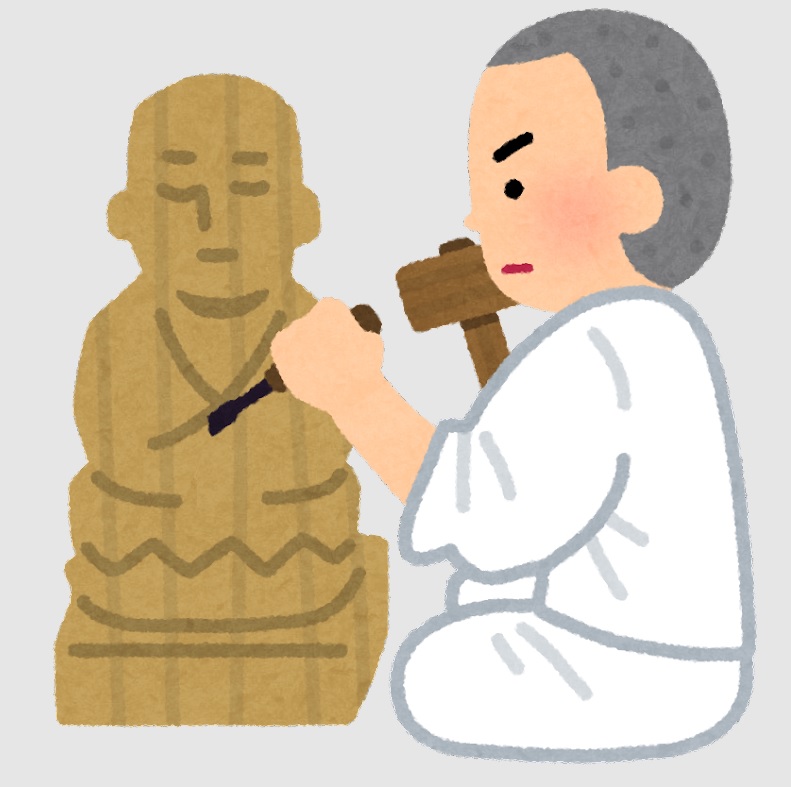「無駄遣い|金の仏像で相続税をスマートに回避!?」
〜前回のつづき〜
●祈りのカタチ、税金のカタチ~無駄遣いではなく、本当に意味のある祈りを~

・仏壇
・仏具
・墓石
・仏像
など
普段からお祈りの対象にしている
上記のものには
相続税が掛からないんですね。
これは
宗教的な兼ね合いも有って
そうなんですけど
ではこれを利用して
金の仏像は相続税の対策になるのか?
という事ですが
昔は結構そんな事も
言われたりしました。
・金の仏具
・金の仏像
などを相続対策にするから
1000万円の金の仏具や仏像を買うんだ
という人もいたらしいですが
あまりにも
不自然に高額なのであれば

当然否認される可能性もあります。
大事なのは
税金対策になる云々を除いて
そもそも資産価値が無いんですよね。
純金のお燐や仏像を買ったところで
100万円で買ったとしても
100万円で売れないですよね。
だから

無駄遣いしてしまってるだけなんです。
純金のお燐なんかは
叩いたら凹んでしまいますので
使用に耐えません。
●借金や葬儀費用は、遺産から差し引ける~遺すのは財産だけじゃない~

借金や葬儀費用は
財産から差し引く事が出来るんですよ。
例えば
5000万円預金で持っていた人が
葬儀費用に200万円かかって
借金が1000万円あったとすると
差し引き3800万円の財産
という事になります。
5000-200-1000=3800万円
●預金はそのまま、でも家や車、株はどう評価する?~あなたの財産、その価値を正しく見極めよう~

財産の評価はどうやって決めるのか?
仮に4000万円までの財産は
相続税がかからないのはわかったけど
この4000万円の財産の評価というのは
どうやって決めるのか?
何をもってして4000万円なのか?
という話ですよね?
例えば
これが預金だったらわかりますよね?
4000万円の預金が残ってたのであれば
4000万円の財産だとわかると思いますが
では
・家
・車
・外貨
・株
などはいくらで見るのか?
どうやって決めるのでしょうか?
〜〜〜つづく〜〜〜
Special Thanks college president Ryo.

●おまけ
≪≪Chat-GPTくんによる要約→perplexityちゃんによる文章まとめ≫≫
相続税に関する重要なポイントをまとめます。仏壇や仏具、墓石、仏像など、日常的に使用する宗教的なアイテムは相続税の対象外です。この特例を利用して金の仏具や仏像を相続税対策として購入することは、実際には推奨されません。不自然に高額な場合、税務当局に否認される可能性があり、また資産価値が低下するリスクもあります。
さらに、相続財産から借金や葬儀費用を差し引くことができるため、例えば5000万円の預金があれば、葬儀費用200万円と借金1000万円を差し引いた3800万円が実際の相続財産となります。
最後に、財産の評価方法は資産の種類によって異なります。預金は額面通り、不動産は路線価、車両は市場価格、株式は平均株価で評価されます。正確な評価には専門家の助言を受けることが重要です。
Citations:
[1] https://www.oag-tax.co.jp/souzokuzei/column/buddhist-accessories-inheritance-tax-measures-5999/
[2] https://chester-tax.com/column/4346.html
[3] https://www.matsuya-iedepa.jp/knowledge/22666p/
[4] https://www.miraisoso.net/blogs/butsugu/20250121_5
[5] https://www.e-butsudan.com/guide/1789/
[6] https://www.e-souzok.com/report/archives/669
[7] https://tomorrowstax.com/knowledge/202107039138/
≪≪Chat-GPTくんによる英訳≫≫
~Continuation from the previous discussion:~
【The Shape of Prayer, The Shape of Taxes – Meaningful Prayer, Not Wasteful Spending】
Items like:
– Altars
– Buddhist ritual items
– Gravestones
– Buddhist statues
Which are commonly used for prayer, are exempt from inheritance tax.
This is due to religious considerations.
But does that mean golden Buddha statues can be used as inheritance tax measures?
In the past, it was often suggested.
Some people even bought expensive golden Buddha statues and ritual items, believing they could use them to avoid taxes.
However, if the price is unreasonably high, there is a risk of it being denied.
What’s important is that, aside from tax considerations, these items simply don’t have any real asset value.
For example, if you buy a gold Buddha statue for 1 million yen, you’re not going to be able to sell it for that same price.
It ends up being just a waste.
Gold items, such as a golden lamp, can even get dented with use and become unusable.
—
【Debts and Funeral Expenses Can Be Deducted From Your Estate – It’s Not Just About Leaving Behind Wealth】
Debts and funeral expenses can be deducted from your estate.
For instance, if someone has 50 million yen in savings, incurs 2 million yen in funeral costs, and has 10 million yen in debt, the remaining estate would be 38 million yen.
50 million – 2 million – 10 million = 38 million yen
—
【Cash Is Clear, But How Do You Evaluate Property, Cars, and Stocks? – Accurately Assess Your Estate’s True Value】
How is the value of your estate determined?
You may know that if your estate is worth up to 40 million yen, inheritance tax will not apply. But how is that 40 million yen calculated?
For example, if the estate is in cash, it’s easy to understand.
If there’s 40 million yen in savings, then the estate is worth 40 million yen. But what about:
– Houses
– Cars
– Foreign currency
– Stocks
How are they valued? How is their worth determined?
Special Thanks OpenAI and Perplexity AI, Inc


